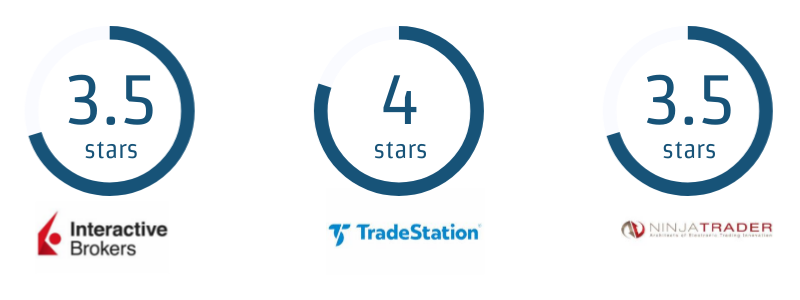
This article will discuss the fundamental principles of forex trading. The basics of forex trading will be covered, such as the different currency pairs, market structure, and how MetaTrader 4 is used to trade. We'll also be discussing how to spot similar market opportunities. Hopefully, by the end of the article, you'll be ready to jump right in and start trading.
Forex trading basics
It is important to have a solid understanding of how currencies work and interact before you can invest in Forex. If you don't have a good grasp of these principles, it can be difficult to succeed in Forex investing. Forex trading requires two types or analysis. These are technical and fundamental analysis. Learning both can give you a competitive advantage.
Focus on just a few currency pairs while you learn the basics. EUR-USD is the most important. It is important to learn how to limit your losses especially when you're just starting out.

Currency pairs
Currency pairs is a relatively simple concept. They represent the exchange rate between two currencies. One currency is called "base currency" and the other, "quote currency". Traders can make money by accurately predicting how the currency will appreciate against the currency they are trading. There are hundreds to choose from when trading currency pairs. There are many currency pairs that you can trade, including the British Pound against US Dollars, Euro against Japanese Yoens, and US Dollar against British Pounds.
Currency pairs are quoted using an offer and bid price. The forex broker's offer price is what they will pay to purchase the base currency, while the ask price represents the price they would sell it for.
MetaTrader 4 platform
To trade forex with the MetaTrader 4 platform, you need to download MetaTrader 4 and register for a trading account. After you have registered, you can use MetaTrader 4's Order window to place your initial trade. This window allows you to instantly place an order in market. Click on the 'New Window' button in the MT4 toolbar to open the Order window. Or press F9 for the order window.
A broker that offers MetaTrader 4 will be required to open your account. There are many. Review broker reviews to find the right broker for you.

Identifying similar markets
When it comes the forex market, timing is everything. There are many ups, downs and trends in forex prices before one trend continues. It is therefore important to know when you should buy and sell. Traders want to avoid buying at tops and selling at key support levels. They want to be in the market at the best moment for the trend to continue.
Creating a trading plan
It is important to establish a trading program before you trade in foreign exchange markets. A trading plan will keep your focus and discipline, as well help to limit your losses. As with any type of trading plan, you should include money management criteria.
A trading plan can help you keep track of your goals and objectives. It will also prevent you from making quick decisions. It will help you trade more confidently and without emotional involvement.
FAQ
Who can trade in the stock market?
Everyone. But not all people are equal in this world. Some people have more knowledge and skills than others. They should be recognized for their efforts.
Other factors also play a role in whether or not someone is successful at trading stocks. You won't be able make any decisions based upon financial reports if you don’t know how to read them.
You need to know how to read these reports. You need to know what each number means. And you must be able to interpret the numbers correctly.
You will be able spot trends and patterns within the data. This will help to determine when you should buy or sell shares.
You might even make some money if you are fortunate enough.
How does the stockmarket work?
You are purchasing ownership rights to a portion of the company when you purchase a share of stock. The shareholder has certain rights. He/she may vote on major policies or resolutions. He/she can seek compensation for the damages caused by company. He/she may also sue for breach of contract.
A company cannot issue more shares that its total assets minus liabilities. This is called capital adequacy.
Companies with high capital adequacy rates are considered safe. Low ratios make it risky to invest in.
What is the difference in a broker and financial advisor?
Brokers are individuals who help people and businesses to buy and sell securities and other forms. They manage all paperwork.
Financial advisors are specialists in personal finance. They help clients plan for retirement and prepare for emergency situations to reach their financial goals.
Banks, insurance companies and other institutions may employ financial advisors. You can also find them working independently as professionals who charge a fee.
You should take classes in marketing, finance, and accounting if you are interested in a career in financial services. You'll also need to know about the different types of investments available.
What are the benefits to investing through a mutual funds?
-
Low cost - Buying shares directly from a company can be expensive. It is cheaper to buy shares via a mutual fund.
-
Diversification: Most mutual funds have a wide range of securities. One security's value will decrease and others will go up.
-
Professional management - professional managers make sure that the fund invests only in those securities that are appropriate for its objectives.
-
Liquidity- Mutual funds give you instant access to cash. You can withdraw your money at any time.
-
Tax efficiency - Mutual funds are tax efficient. So, your capital gains and losses are not a concern until you sell the shares.
-
No transaction costs - no commissions are charged for buying and selling shares.
-
Mutual funds are easy-to-use - they're simple to invest in. All you need to start a mutual fund is a bank account.
-
Flexibility - you can change your holdings as often as possible without incurring additional fees.
-
Access to information - you can check out what is happening inside the fund and how well it performs.
-
Investment advice - you can ask questions and get answers from the fund manager.
-
Security - know what kind of security your holdings are.
-
Control - you can control the way the fund makes its investment decisions.
-
Portfolio tracking allows you to track the performance of your portfolio over time.
-
Easy withdrawal: You can easily withdraw funds.
Disadvantages of investing through mutual funds:
-
Limited investment opportunities - mutual funds may not offer all investment opportunities.
-
High expense ratio - the expenses associated with owning a share of a mutual fund include brokerage charges, administrative fees, and operating expenses. These expenses will eat into your returns.
-
Insufficient liquidity - Many mutual funds don't accept deposits. They can only be bought with cash. This limits the amount of money you can invest.
-
Poor customer support - customers cannot complain to a single person about issues with mutual funds. Instead, you must deal with the fund's salespeople, brokers, and administrators.
-
Risky - if the fund becomes insolvent, you could lose everything.
How are securities traded?
Stock market: Investors buy shares of companies to make money. In order to raise capital, companies will issue shares. Investors then purchase them. Investors then resell these shares to the company when they want to gain from the company's assets.
Supply and demand determine the price stocks trade on open markets. The price goes up when there are fewer sellers than buyers. Prices fall when there are many buyers.
There are two ways to trade stocks.
-
Directly from the company
-
Through a broker
What are the benefits to owning stocks
Stocks are less volatile than bonds. The value of shares that are bankrupted will plummet dramatically.
If a company grows, the share price will go up.
For capital raising, companies will often issue new shares. This allows investors to buy more shares in the company.
To borrow money, companies use debt financing. This allows them to borrow money cheaply, which allows them more growth.
When a company has a good product, then people tend to buy it. The stock's price will rise as more people demand it.
As long as the company continues to produce products that people want, then the stock price should continue to increase.
What is a REIT and what are its benefits?
An entity called a real estate investment trust (REIT), is one that holds income-producing properties like apartment buildings, shopping centers and office buildings. These companies are publicly traded and pay dividends to shareholders, instead of paying corporate tax.
They are similar in nature to corporations except that they do not own any goods but property.
Statistics
- "If all of your money's in one stock, you could potentially lose 50% of it overnight," Moore says. (nerdwallet.com)
- Individuals with very limited financial experience are either terrified by horror stories of average investors losing 50% of their portfolio value or are beguiled by "hot tips" that bear the promise of huge rewards but seldom pay off. (investopedia.com)
- Ratchet down that 10% if you don't yet have a healthy emergency fund and 10% to 15% of your income funneled into a retirement savings account. (nerdwallet.com)
- For instance, an individual or entity that owns 100,000 shares of a company with one million outstanding shares would have a 10% ownership stake. (investopedia.com)
External Links
How To
How do I invest in bonds
You need to buy an investment fund called a bond. While the interest rates are not high, they return your money at regular intervals. This way, you make money from them over time.
There are many ways to invest in bonds.
-
Directly buy individual bonds
-
Purchase of shares in a bond investment
-
Investing through a bank or broker.
-
Investing through an institution of finance
-
Investing in a pension.
-
Directly invest through a stockbroker
-
Investing through a mutual fund.
-
Investing through a unit trust.
-
Investing through a life insurance policy.
-
Investing in a private capital fund
-
Investing with an index-linked mutual fund
-
Investing in a hedge-fund.